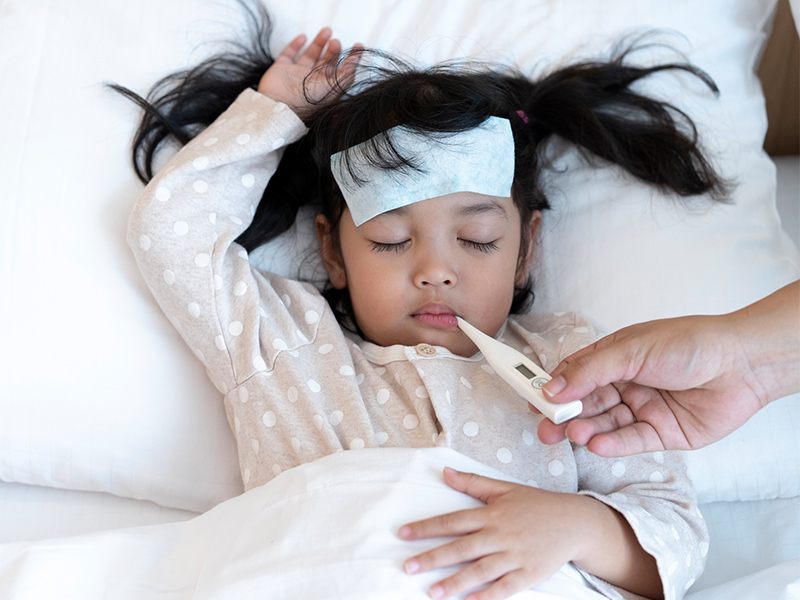Why the common childhood virus RSV is back this winter
After laying low during Covid-19 lockdowns, the common respiratory syncytial virus is re-emerging this winter and it’s hitting young kids hard.
This time each year brings a bout of winter viruses and one of the most common is respiratory syncytial virus or RSV, and young children are most likely to be hardest hit.
Australia’s tight Covid-19 prevention measures caused RSV numbers to become “notably absent” as people stayed home and there was less opportunity for it to spread.
But with pandemic restrictions now eased, RSV was one of the first key respiratory pathogens to re-emerge.
What is RSV?
Melbourne’s Royal Children’s Hospital says RSV is one of the most common causes of respiratory infection in young children.
It typically causes cold-like symptoms such as a runny nose, cough, wheezing and low-grade fever.
“In some younger infants, particularly those aged less than six months, it can infect the smaller airways of the lung, causing bronchiolitis that can be associated with wheezing, shortness of breath and difficulties in feeding,” RCH chief of medicine Associate Professor Tom Connell says.
- Safety measures: Should I wear a mask even if I don’t have to this winter?
How does RSV spread?
Like a cold and Covid, RSV is spread through infected droplets when we cough or sneeze. The virus can survive on surfaces for several hours and on our hands for up to an hour.
RSV can also spread if children share cups and cutlery.
Regular handwashing, wiping down surfaces, and sneezing into tissues or an elbow help minimise contamination.
Who is most at risk of RSV?
RSV is most common in children under two, says Assoc Prof Connell.
“Most children under the age of two will have already come across RSV and may not have become unwell, or only had mild symptoms,” he says.
“Infants under six months are most vulnerable as RSV may make breathing a little harder and cause some issues with feeding.”
- Kids conditions: The changing face of childhood illnesses
How serious is RSV?
In the majority of cases, RSV is self-limiting and will run its course without needing medical treatment, says Assoc Prof Connell.
Parents may even assume it’s just a cold.
Parents should see a GP if their child has a high temperature and breathing difficulties, or if they are concerned about feeding.
“Hospitals are very experienced in dealing with RSV,” Assoc Prof Connell says.
“A very small minority of babies may require supplementary oxygen but usually they just need support with feeding.”
How should RSV be managed?
Children should rest at home if they feel unwell, drink plenty of fluids and use a small amount of paracetamol or ibuprofen to manage any discomfort or fever.
Symptoms tend to peak on day two or three and then ease over the next few days.
There is no vaccine for RSV.
How concerned should parents be about RSV?
“Currently, paediatricians are more concerned about the high rates of Flu A in the community, rather than RSV,” Assoc Prof Connell says.
“Young children, in particular, are more vulnerable to severe Flu A infection and we strongly encourage families and children over the age of six months to get the flu vaccine.”
- Protect yourselves: Why your family needs their flu shot – especially the kids
Written by Sarah Marinos.





